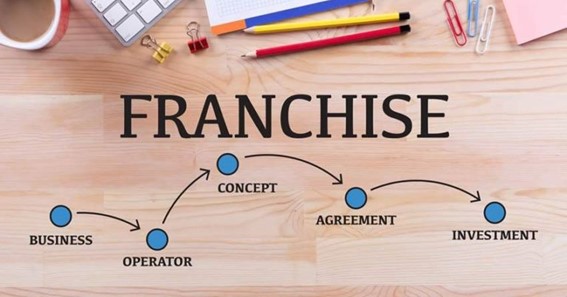As a person that wants to be their own boss, you have probably thought about starting your own business. If you are not willing or able to start a business from scratch, you may have considered franchising or investing in a business opportunity. Franchising is a business model in which the owner (the franchisor) of a successful business provides the blueprint for replicating their business to other entrepreneurs (the franchisees). The franchisor typically provides support in marketing, training, and product development. In return for following the proven business model and paying an initial franchise fee, the franchisee is given the right to use the franchisor’s name and brand.
On the other hand, a business opportunity is a package of products and services that allow the buyer to start their own business. Unlike franchising, there is usually no established brand or business model to follow. The focus is typically on selling the products and services rather than replicating a successful business model. A good way to view a business opportunity is as a “business in a box.” So, before checking out opportunities to own a business brokers franchise, read below to know the difference between a franchise and a business opportunity.
- Fees
When you buy a franchise, you will typically pay an initial franchise fee. This fee gives you the right to use the franchisor’s name, brand and access to their business model and support system. This fee varies from franchise to franchise depending on the company’s size, the support that is included, and other factors. Franchises also have additional financial requirements, such as minimum net worth, minimum liquid assets, and sometimes even a Franchise Disclosure Document (FDD) fee. In summary, the total startup costs for a franchise can be quite high, $75,000 to $500,000 — or higher for well-known brands such as Mcdonald’s and KFC.
Business opportunities, on the other hand, have much lower startup costs. As mentioned before, the focus is typically on selling the products and services rather than replicating a successful business model. As such, there are no franchise fees or other similar charges. This can make business opportunities a more attractive option for those with limited capital. Business opportunities can be seen as a one-and-done sale, while franchising is a long-term relationship.
- Support and Training
When you buy a franchise, you are buying into a proven business model that comes with support and training from the franchisor. The franchisor wants you to be successful because your success reflects positively on their brand. As such, they will often provide comprehensive training on how to run the business and ongoing support in areas such as marketing and product development. Most franchises require a minimum of 10 years of commitment from the franchisee.
Business opportunities typically provide very little support or training. As such, you are usually on your own when it comes to operating the business. This can be seen as an advantage or disadvantage, depending on your entrepreneurial skills and experience.
- Regulation
Both franchises and business opportunities are regulated by the Federal Trade Commission (FTC). Franchises are regulated under 16 CFR Part 436, also known as the Franchise Rule. This rule requires franchisors to provide potential franchisees with a disclosure document that includes information on the franchisor, the franchise system, and the financial performance of existing franchisees. The franchise disclosure forms are often 100 to 400 pages long.
Business opportunities are regulated under 16 CFR Part 437, also known as the Business Opportunity Rule. This rule requires sellers of business opportunities to disclose certain information to potential buyers, such as the seller’s legal name and any legal actions taken against them. Biz ops disclosure docs are typically only 1-page long.
- Brand Recognition
Franchises have the advantage of brand recognition. If you buy a McDonald’s franchise, people will already know the name and what to expect from the product. This can make it easier to attract customers and grow your business.
Business opportunities don’t usually come with the same level of brand recognition. It can be more difficult to attract customers and grow your business. However, this also means that there is less competition from other businesses offering similar products or services.
- Rules and Restrictions
Franchises have strict rules and regulations that franchisees must follow. This includes everything from the products and services offered to how the business is operated. These rules and regulations are in place to help ensure the success of the franchise system.
Business opportunities usually have fewer restrictions on what the buyer can do with the business. This can provide more flexibility for those who want to be their own boss and run their business their own way.
When deciding whether to buy a franchise or a business opportunity, it’s important to weigh the pros and cons of each option. Consider your financial situation, entrepreneurial skills, and long-term goals before making a decision.







